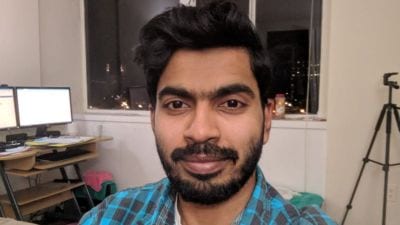Even in New avitar, Putin may keep bear-like grip on power
Putin, 55, was overwhelmingly elected as Russia’s new Prime Minister.

Vladimir Putin, who dominated Russia’s political scene for the past eight years as President, is expected to maintain his bear-like grip on power even in his new avatar as Prime Minister.
Putin, 55, was overwhelmingly elected on Thursday as Russia’s new Prime Minister the lower house of parliament, a day after he handed over presidency to his handpicked successor Dmitry Medvedev, promising to transform the relatively low-key office into a key power centre in Russian politics.
“For me it’s clear that the government can only be strong and effective if it can fully rely on the legislative power,” Putin told the house, soon after he was confirmed as the 10th premier by a vote of 392 to 56.
“Based on those principles, I intend to build my relationship with the state Duma. I expect that you will take the same attitude and the same approach,” he said.
Putin’s confirmation is the last piece of the puzzle to fall into place in Russia’s new political scene, deftly crafted by the former KGB officer.
Putin could be taking a great deal of power with him to the premiership, analysts say.
He and 42-year-old Medvedev, Putin’s protege, have said they will rule jointly from their respective offices. During his time in office, Putin created a network of loyal officials on every level of government — all appointed, not elected.
Putin’s supporters credit him with restoring Russia’s national pride and spearheading an economic transformation after the chaos that followed the demise of Soviet Union.
But critics, including human rights groups and Western leaders say he is trampling on democratic rights and trying to take Russia back to the days of Soviet one-party rule.
He is also accused on cracking down on dissent and political opponents, not sparing the free media either.
Putin was a virtual unknown when he was picked up by president Boris Yeltsin as his political heir less than nine years after the fall of the Soviet Union.
His popularity shot up in his first months in office after he oversaw a bloody military operation against Chechnya’s separatist rebellion.
Many say the defining characteristic of Putin’s two terms in office may be the consolidation of Kremlin’s power, marked by a legal campaign against the Yukos oil company and its billionaire owner Mikhail Khodorkovsky.
Born on October 7, 1952, Putin grew up in Saint Petersburg, then known as Leningrad, and went to law school at the Leningrad University.
He joined the KGB in 1985, travelling to East Germany.
Back in Saint Petersburg in 1991, he joined the city administration as an official in charge of economic relations.
The next few years saw Putin’s gradual ascent to power, securing appointment as director of the FSB, the successor agency to the KGB and becoming the prime minister in August 1999 under Yeltsin.
On December 31, 1999, Yeltsin announced his resignation, naming Putin as successor. The charismatic leader won a massive victory in an election three months later.
In recent years, Putin has taken an assertive stance on the global stage, the highlight being a tussle with the US over its plans for a missile shield in eastern Europe.
Russia’s ties with the UK also seen some upheaval over Putin’s refusal to extradite Andrei Lugovoi, wanted on charges of killing ex-KGB officer Alexander Litvinenko.
Putin is married to Lyudmila Shkrebneva, a former flight attendant, and the couple have two daughters: Masha and Yekaterina.
Photos




- 01
- 02
- 03
- 04
- 05



























